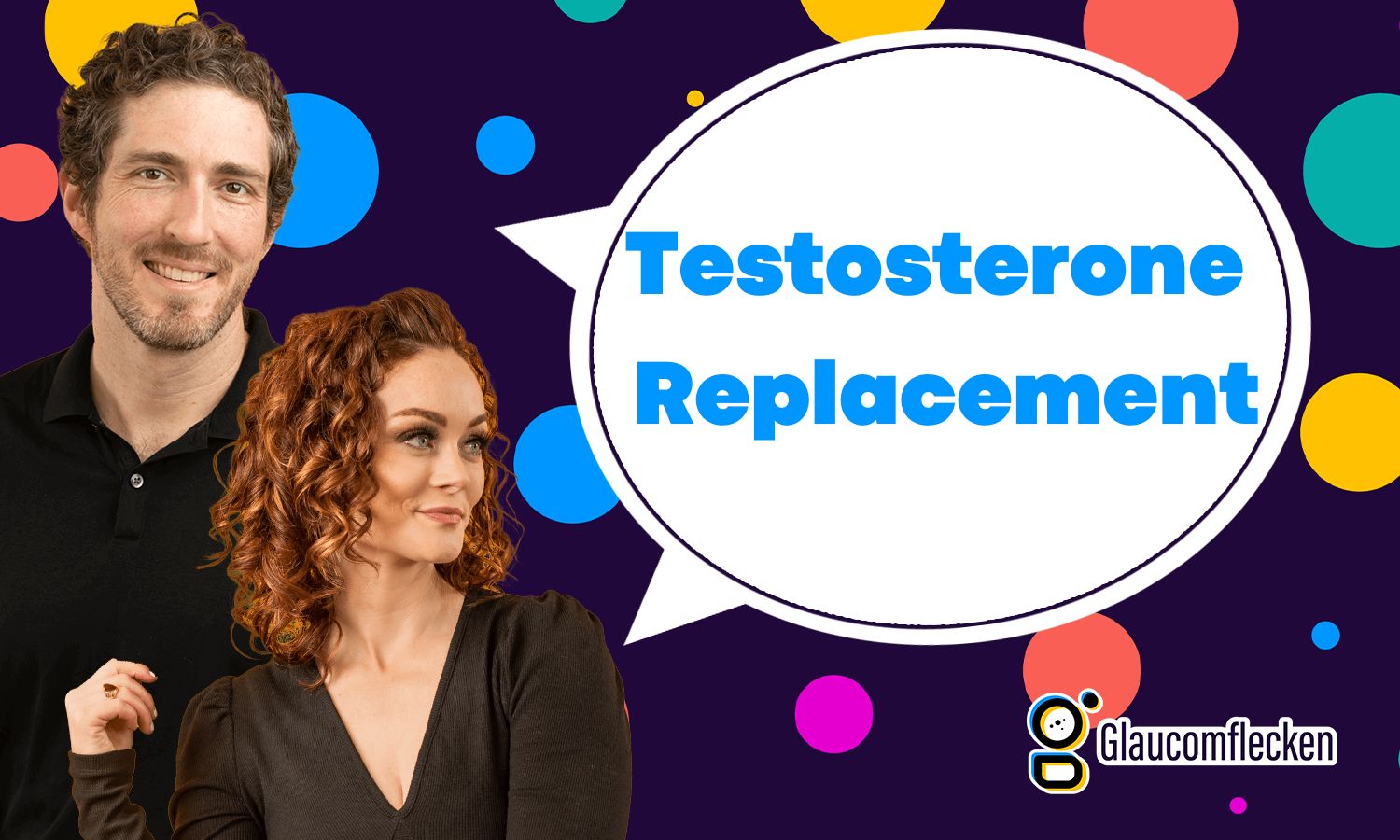Imagine having cancer twice before you even turn 30. All while balancing life as a young med student, husband, and father.
That’s precisely what happened to Dr. Glucomflecken, also known as Will Flanary.
A testicular cancer survivor, he found himself on a quest for testosterone. Trying to find the elusive balance of what his body and mind desperately needed.
Let’s dive into Will and Kristin’s journey and challenges. Highlighting the solutions they discovered to navigate testosterone replacement.
First Diagnosis
In their mid-20s, Will and Kristin received the devastating news of testicular cancer.
Will had one testicle removed. Doctors told him that testosterone replacement wasn’t necessary. So he soldiered on with one testicle.
They navigated the resulting fatigue and mood changes.
Second Diagnosis
Fast forward four years, cancer struck again. This time in Will’s remaining testicle.
Suddenly, he found himself without the ability to produce testosterone before reaching 30. It was clear that he now needed testosterone replacement. Finding the right solution proved to be a battle spanning several years.
Three Treatments
Throughout his journey, Will experimented with various options.
Gels were inconvenient. His young daughters wanted to play with and hug him. But the gel couldn’t come into contact with them after being applied to his skin. Plus, the dosage was insufficient.
The injections worked better, but they left him riding a rollercoaster of mood swings. After a shot, he felt great at the start of the week, but as the week wore on, he became more tired and crabby.
It felt like he was constantly chasing stability.
By talking with urologists at a conference, he stumbled upon testosterone pellets.
Nowadays, Will gets a testopel implant of pellets implanted into his butt every 3 months along with intermittent testosterone cypionate injections. He feels more balanced. But there is a limit to the number of pellets that can be implanted at one time. So, he still does not receive an ideal amount of testosterone to feel fully well.
Cancer Doesn’t Care About Your Age
Unlike most testicular cancer patients, Will and Kristin were young when they received his diagnosis. They were also the parent of small children and still in college.
Kristin shares how their lives were uniquely impacted compared to older men. They juggled parenthood and treatment, struggling to keep up with their energetic kids. It never crossed their minds that Will would need lifelong testosterone replacement.
Kristin urges doctors to consider these differences when treating younger patients.
Listen To Your Body
Will stresses the significance of early detection, having caught his cancer early through regular self-examinations. He urges others to seek medical attention promptly for any noticeable changes.
Don’t delay!
Testicular cancer is highly treatable.

